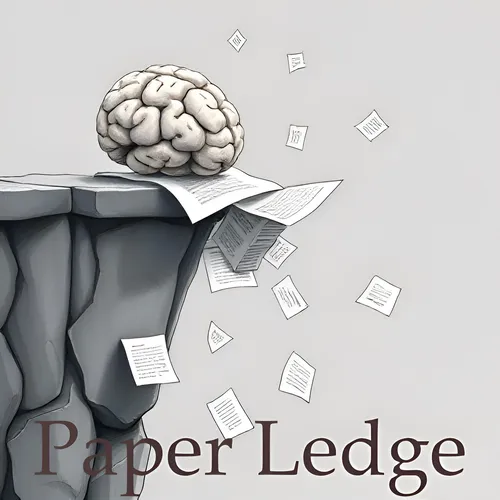Computation and Language - LLMs vs. Chinese Anime Enthusiasts A Comparative Study on Emotionally Supportive Role-Playing
- Author
- ernestasposkus
- Published
- Mon 11 Aug 2025
- Episode Link
- https://www.paperledge.com/e/computation-and-language-llms-vs-chinese-anime-enthusiasts-a-comparative-study-on-emotionally-supportive-role-playing/
Hey everyone, Ernis here, and welcome back to PaperLedge! Today, we're diving into some seriously cool research that blends the power of AI with the personalities we love from anime. Get ready to explore the world of emotionally supportive virtual anime characters!
So, we all know Large Language Models, or LLMs – those powerful AIs that can write, translate, and even hold conversations. And separately, we've seen research on AI providing emotional support. But what happens when you combine these two? That's what this paper tackles.
Think about it like this: you're having a bad day, and instead of talking to a regular chatbot, you could chat with a virtual character from your favorite anime – someone with a distinct personality who gets you and offers genuine emotional support. Pretty neat, right?
That's where ChatAnime comes in! These researchers noticed that no one had really explored this intersection of role-playing and emotional support, so they decided to create a dataset specifically for that. And they chose anime characters as their case study – for a few key reasons:
- Anime characters have super well-defined personalities. We all know how a particular character would react in a certain situation, right?
- Anime has huge fan bases. This means there are tons of people who are deeply familiar with these characters and can provide accurate and insightful feedback.
Basically, it’s the perfect test case to see if an AI can truly nail the role-playing aspect while offering meaningful emotional support.
So, how did they do it? Well, first, they carefully selected 20 popular anime characters – the kind everyone knows and loves. Then, they crafted 60 real-world scenarios designed to trigger different emotions. Think situations like dealing with a breakup, facing a career setback, or coping with loneliness. Relatable stuff, right?
Next, they recruited 40 anime enthusiasts from China. These weren't just casual fans; they were die-hard experts with a deep understanding of the chosen characters and tons of experience role-playing as them. Imagine a cosplayer who not only looks the part but also lives the part!
Then the fun began. The researchers had both the human fans and 10 different LLMs respond to those 60 scenarios, acting as the assigned anime character. This resulted in a massive dataset of 2,400 human-written answers and 24,000 AI-generated ones! And to top it off, they collected over 132,000 annotations from the human participants, grading the responses based on various criteria.
It's like a massive improv session, but with AI trying to keep up with seasoned human performers!
Now, for the big question: how did the AIs perform? The researchers designed a really detailed evaluation system with 9 different metrics to measure things like:
- Basic dialogue quality: Did the AI make sense?
- Role-playing accuracy: Did the AI truly capture the character's personality and speaking style?
- Emotional support effectiveness: Did the AI offer helpful and empathetic responses?
- Response diversity: Did the AI respond in different ways to similar situations?
And here's where things get interesting: the results showed that the best LLMs actually surpassed human fans in role-playing accuracy and emotional support! That's right, in some cases, the AI was better at being the anime character than the human fan!
However, humans still held the edge when it came to response diversity. The AIs, while good, sometimes fell into predictable patterns, while the humans were more creative and nuanced in their responses.
So, what does all this mean? Well, it shows that AI is getting really good at understanding and mimicking human emotions and personalities. It opens up some exciting possibilities for the future of virtual companions, personalized therapy, and even just having fun conversations with your favorite characters.
But it also raises some interesting questions for our PaperLedge learning crew:
- If an AI can provide better emotional support than a human in some cases, does that change our perception of what it means to connect with someone emotionally?
- As AI becomes more sophisticated in mimicking personalities, how do we ensure that these virtual characters are used ethically and don't exploit people's emotions?
- And finally, could this type of technology be used to create personalized learning experiences, where a virtual tutor adapts to your emotional state and learning style?
This research is a fascinating glimpse into the future of AI and its potential to enhance our lives in unexpected ways. The team has made their dataset publicly available (check the link in the show notes!), so other researchers can build on their work and push the boundaries of what's possible.
That's all for today's PaperLedge! Thanks for joining me on this exploration of emotionally supportive anime characters. Until next time, keep learning, keep questioning, and keep exploring the amazing world of AI!
Credit to Paper authors: Lanlan Qiu, Xiao Pu, Yeqi Feng, Tianxing He
